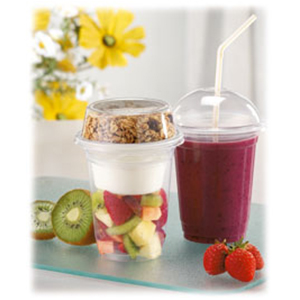Vital Stats
- Company: Cupmasters
- Player: Anne-Marie le Roux
- Est: 1990
- Contact: +27 (0)11 463 1379
- Email: sales@cupmasters.co.za
- Visit: www.cupmasters.co.za
You don’t need the ‘Next Big Thing’. Success often lies in providing an established product in a new and clever way.
Think Differently
How do you distinguish one commodity from another? Whether it’s bottled water or a new car, commoditisation is everywhere. Unless you’re a smart entrepreneur that is.
Anne-Marie le Roux, founder of Cupmasters, doesn’t believe in commoditisation, and she has proven that everything can be differentiable. Even a disposable cup.
When Le Roux left a career in town planning to take care of her first child, she discovered – much to her irritation – that the cups she bought for the baby leaked all over everything. There had to be lots of other mothers out there who were equally annoyed.
She researched available options and came up with an improved design that was watertight. Next, she found a manufacturer and soon she was supplying cups for the baby market.
One thing led to another and soon buyers in the food and beverage industry started calling her to enquire if she supplied disposable cups too.
“The brand name and contact details were printed on the bottom of my product and the enquiries came in as a result of word of mouth,” Le Roux recalls.
“Because I have never been able to say ‘no’, I immediately said ’yes’ and then I had to make it happen. It doesn’t matter what business you are in, your attitude has to be right.”
It’s the way that you do it
 Le Roux’s approach and imagination naturally led to product differentiation, because of the way she operates. She trades in disposable cups, but what she ‘sells’ is unique execution.
Le Roux’s approach and imagination naturally led to product differentiation, because of the way she operates. She trades in disposable cups, but what she ‘sells’ is unique execution.
The product itself may be generic, but her offering is different. And that difference does not lie in marketing – when she started the business, she had a listing in the Yellow Pages; today she has an active website that attracts a lot of business, but there’s no expensive advertising.
“It’s about efficiency, responsiveness and communication,” she says. “We also give clients exactly what they want. We don’t go to them and show them our product range. Instead, we ask them what they are looking for, including printing and packaging, which is a big differentiator.
“Unlike many other suppliers, we can package cups according to client specifications, we can print almost anything they want on the cups, and we can provide both large and small quantities, not just big bulk orders. That means that it’s easy for clients to place an order for a once-off special event. The relationship we have with our outsourced manufacturer enables us to scale up or down as needed.”
Her attitude has served the business well in one other important way: When she first started supplying cups to coffee shops like the Brazilian in the 1990s, she had no idea they would one day form part of the massive Famous Brands group.
Providing exceptional service to a couple of small stores led to her becoming a supplier to one of the biggest companies in the food and beverage sector. She even succeeded in meeting the exacting standards of Woolworths, another major client.
“How we offer the product is what gets us the customers, and how we deliver it is what keeps them coming back,” she says.
Success through differentiation
In a January 1980 Harvard Business Review article titled ‘Marketing Success Through Differentiation – of Anything’, Theodore Levitt wrote: “Customers attach value to a product in proportion to its perceived ability to help solve their problems or meet their needs. All else is derivative. As a specialist in industrial marketing has expressed it, the ‘product’… is the total package of benefits the customer receives when he or she buys.”
If ever there was a business that could prove the enduring value of this 35-year old idea, Cupmasters is one. As Levitt explains in his article, the product is only a small portion of the value the customer experiences from a purchase.
“What is equally important is the way the product is delivered, the fact that we can respond immediately if demand peaks during a heat wave in summer when thousands of people are ordering ice-cold drinks, or in a cold snap in winter when takeaway coffee and hot chocolate sales spike,” says Le Roux.
“Or if the customer is thinking of an innovative new design, and we come up with the solution.”
What Le Roux is referring to is that a disposable cup packaged in a bundle of added value is not a commodity at all. It is, as Levitt affirms, a measurably differentiated product.
“Customers never just buy the ‘generic’ product like steel, or wheat, or sub-assemblies, or investment banking, or aspirin, or engineering consultancy, or golf balls, or industrial maintenance, or newsprint, or cosmetics, or even 99% pure isopropyl alcohol.
“They buy something that transcends these designations – and what that ‘something’ is helps determine from whom they’ll buy, what they’ll pay, and whether, in the view of the seller, they’re ‘loyal’ or ‘fickle’.”








